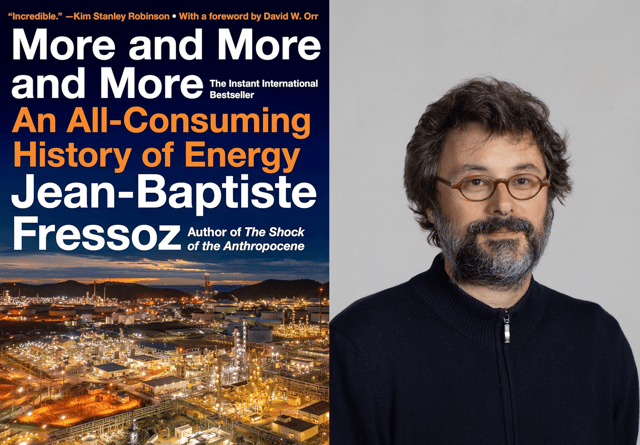
This story was published in collaboration with The Guardian.
A sleek new startup promising to 'advance the energy transition' launched earlier this month. Marketing materials tout the organization’s ability to “[connect] thousands of innovators across the globe to tackle difficult energy and climate challenges,” while its new board members include an executive from Nike and a university lecturer who also sits on the board at PBS.
Less obvious is the parent company of this venture: Shell, a company that brought in $28 billion in profits from oil and gas last year. Experts say the tech company—a reboot of an earlier venture from Shell called Studio X—is part of a broad greenwashing strategy fossil fuel companies have been employing for decades.
Projects like Onward “[allow] Shell to pretend it's helping find solutions instead of just accelerating the climate crisis,” Paris Marx, a technology critic and host of the Tech Won’t Save Us podcast, told Drilled.
The world’s leading climate authority has said that all oil and gas exploration must cease worldwide by 2030 in order to avoid the worst impacts of the climate crisis. But even as they flaunt their involvement in climate tech and investment in climate “solutions,” major fossil fuel companies are ramping up production and doing away with previous climate promises and targets. Shell is no exception: the company’s new CEO, Wael Sawan, has pivoted the company away from previous climate pledges and refocused the company’s efforts to sustain oil production, despite record profits in the first quarter of 2023.
Onward’s new site is filled with cheery-yet-vague greentech jargon: it is “accelerating pathways to energy innovation,” serving as a “hub for innovation, collaboration and entrepreneurialism,” and creating a “compelling, evidence-based picture of the benefits of a net-zero future.” Team bios include descriptions of an ideal day “in our clean energy future”: kitesurfing, snorkeling, hiking, and spending time “in the clean Colorado air” with kids and grandkids. Like Onward, Studio X had also positioned itself as an incubator for climate tech, hosting cohorts of early-stage startups; in November, the company said it had invested $1.5 million across 11 companies. Onward’s press release states that it intends to continue to offer its climate tech startup accelerator program.
Despite the abundance of green imagery and language, much of the Onward platform’s existing content appears to focus on improving oil and gas outcomes. The site’s “Projects” section is a short-term job board hosting dozens of jobs in oil and gas exploration (the hiring companies are kept anonymous). Of the five projects with available descriptions, all but one are explicitly for oil and gas production, while many more of the archived jobs on the platform appear to also be for oil and gas.
One posting asks for applicants to conduct a “coherent petroleum system assessment”; another looks for candidates able “to understand subsurface fluid resource estimates along the US Gulf Coast.” Another advertises a position to map reservoirs using seismic analysis in the Nile Delta. It’s not just the projects: one of the startups sponsored by Studio X last fall was described by a business management consultancy as “Moneyball meets Oil & Gas.”
“Shell has endeavoured to be clear in communications that Studio X was set up to develop and scale up new techniques to explore for oil and gas,” a Shell spokesperson said. “These fuels remain essential to the global energy system and we are proud to provide them. We have maintained that this is an important part of our business, even as we invest in the low carbon system of the future. Last year, $5.6 billion of Shell’s overall capital spend was on low carbon energy, which is nearly a quarter of the total. As Shell transitions to become a net-zero emissions energy business by 2050, that shift is reflected in the work of all parts of the Group, including Studio X/Onward.”
Drilled and The Guardian sent Onward several requests for comment, including questions about which companies sponsored Onward’s “Projects” listings, and whether advertising for jobs that promote continued oil and gas production runs contrary to Onward’s claims of “achiev[ing] a Net Zero future.” An Onward representative did not respond directly to questions but shared the company’s press release on the rebrand and a press kit.
In conversations with other outlets, Onward’s CEO said that the organization aims to help solve thorny problems, like scope 3 emissions, with the energy transition. "The more people we have engaged with the community, the quicker we can create new and innovative solutions to the challenges we face," Jeff Allyn told Axios in early February.
Shell, which has at least three other projects created to invest in energy startups, is not the only fossil fuel company with climate tech ventures. Saudi Aramco, the world’s largest oil company, has two venture enterprises, including a $7 billion fund and a portfolio of investments in renewables, storage, carbon capture and sequestration, and futuristic fuels like hydrogen and ammonia. Exxon, meanwhile, has plans to invest $7 billion in carbon capture and storage, hydrogen, and “lower-emission fuels” through 2027. In January, representatives from Shell, Chevron, SoCal Gas, BP, Southern Company, and Saudi Aramco were all on the guest list at a cleantech industry conference in San Diego.
The emphasis on collaboration to solve the climate crisis is one that consistently crops up in oil and gas public communication, said Melissa Aronczyk, a professor of journalism and media at Rutgers University.
“Behind the idea of collaboration is the idea that everyone is an equal stakeholder in this movement, that we are all in together to combat climate change,” she said. “But that's really not what's going on.”
Aroczyk pointed out that at recent UN climate meetings, oil and gas companies, their lobbyists, and other polluters have been consistently invited to the table under the guise of collaboration—invitations that have enabled them to further block needed action.
“It's a Trojan horse of legitimacy,” she said. “You're under cover of the idea that the climate movement is an all-hands-on-deck situation, but what you're really doing is bringing in players who have very different ideas of what it means to 'solve' the climate crisis."
As part of the Onward rebrand, the organization announced a new board, which includes members from outside the oil and gas industry. Tina Sharkey, for example, is a lecturer at the University of Southern California and sits on the board of PBS, which has run extensive coverage of how Big Oil has used marketing and communications tactics to cast doubt on climate science and stymie climate action. (PBS, USC, and Sharkey did not respond to requests for comment.)
The tech space Onward is positioning itself in may be relatively new. But research from Naomi Oreskes, a historian of science at Harvard University, and Geoffrey Supran, who directs the Climate Accountability Lab at the University of Miami, shows that the use of elite thought leaders and academics and coopting green imagery to enhance and burnish Big Oil’s credentials is a tactic that has been used by the industry for decades.
“Greenwashing confers companies with an aura of environmental credibility while distracting from their anti-science, anti-clean energy disinformation, lobbying and investments,” Oreskes and Supran wrote in a 2021 analysis of historic deceptive oil ads for the Guardian. “The goal is to defend what BP calls a company’s ‘social license to operate.’”


